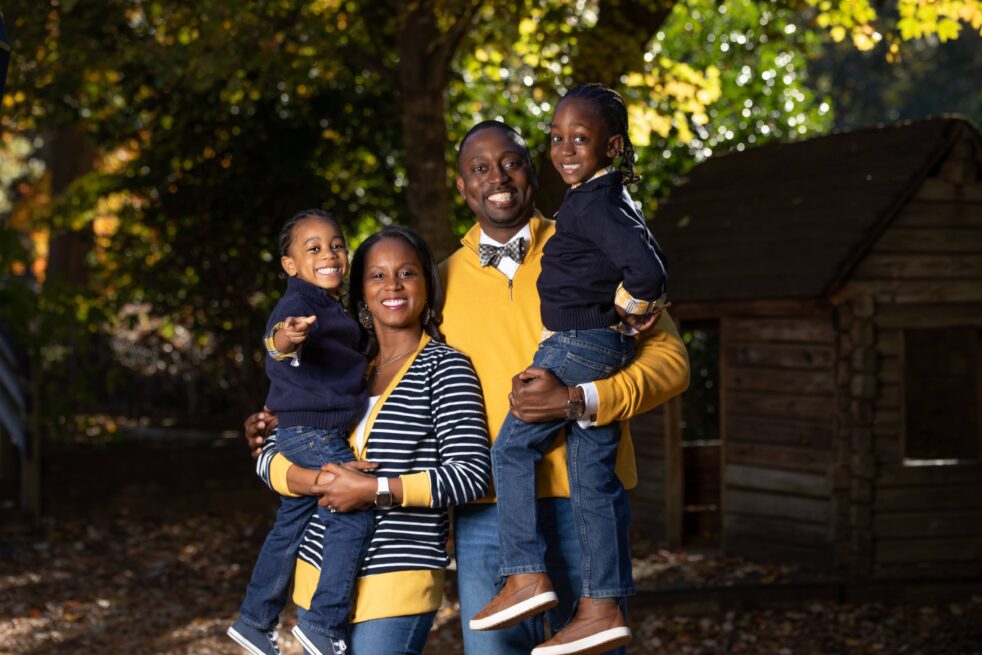In 1998, at the age of 18, Damon P. Williams, a native of Ellicott City, Md., stepped foot on Tech’s campus in Atlanta with a sense of determination to make a difference.
As a freshman staying in Hefner Residence Hall, Williams was unaware of the impact that he would eventually have on the Tech community and Atlanta over 20 years after graduating.
Williams is the new associate dean for inclusive excellence and chief diversity officer in the College of Engineering, and graduated from Tech in 2002 summa cum laude with a Bachelor’s degree in Industrial Engineering.
“My grandmother and parents sacrificed too much for me to be here to have let them down,” Williams said in regards to one of his main motivators entering Tech.
Williams was determined to impact Tech’s campus from his beginnings. While at Tech, Williams served as a student representative for the School of Industrial Engineering, and was an active member of the African American Student Union (AASU) and the Georgia Tech Society of Black Engineers (GT SBE).
During the fall semester of his junior year, in 2000, Williams was initiated into the Nu Mu chapter of Alpha Phi Alpha Fraternity Inc., a fraternity within the National PanHellenic Council (NPHC). Williams served as an active brother in the chapter.
“I remember serving the community and hosting events such as voting drives and community service events. This experience really helped mold my college experience for the better,” Williams said.
When Williams joined the Nu Mu chapter, NPHC at Tech was going through the process of separating from the Interfraternity Council (IFC).
“I actually had the honor of serving as Georgia Tech’s NPHC first Vice President,” Williams said.
Williams also reflected on other experiences at Tech that truly aided him in his success as a student and even as an alum.
“My college experience would have been nothing without OMED (Office of Minority Educational Development),” Williams said, as he reflected on how the department has shaped his life.
As a freshman, OMED gave him the tools and support to succeed as a young African American student at Tech.
Williams also discussed how OMED introduced him to some of the most pivotal people in his undergraduate career, such as College of Computing Associate Dean for Inclusive Excellence Cedric Stallworth and Executive Director of Student Diversity and Inclusion S. Gordon Moore Jr. They poured into him the tools he needed for his success at Tech.
It was a place where he was surrounded by “Black excellence” that allowed him to build off the brilliance of those that looked like him, according to Williams.
“Actually, one of the people that motivated me to get my Ph.D. was my OMED tutor at the time,” Williams said.
She advised him of the expectations and rigor that he would face in his career in industrial engineering.
After graduating from Tech, Williams decided to pursue his Masters and Ph.D. in Industrial and Operations Engineering at the University of Michigan. During his time of study at Michigan, Williams began to find a purpose and passion within Christ through his roommate.
“I accepted Christ when I was 24 years old,” Williams said.
About two years later, Williams found that one of his purposes was to “pour into others,” and became an ordained minister in 2006. He is currently the senior pastor of Providence Missionary Baptist Church.
After finishing graduate school in 2009, Williams returned to Tech — but this time not as a student as he did in 1998, but rather as a professor to instill and payback the knowledge he was given during his time in undergraduate.
“When I was coming through Tech, you only had two Black ISYE professors,” said Williams in relation to what motivated him to return to Tech as a professor.
Williams addressed how it helps African American students thrive rather than just “getting out” when they have someone in the classroom that looks like them and that they can relate to in their everyday struggles.
Even after being promoted to assistant dean, “I’m going right back into the classroom,” said Williams because it is important for him to payback the knowledge to his students.
Williams emphasized that it is crucial for everyone to “raise their intercultural competence.”
“We need to see a more diverse group of individuals in power from various races, genders and sexual orientations … Then it’s not shocking when you find a professor that is unlike what you’re used to,” said Williams in regards to diversity in the classroom at Tech.
Williams believes that a student’s raw intelligence is not a predictor for how well you will do at Tech.
“Your work ethic is the number one predictor of how well you will do at Georgia Tech,” Williams said.
Looking forward, Williams knows exactly what type of impact he aspires to have.
“My faith has called me to love my students and to instill knowledge in them and to love others. That’s the type of impact I want to have,” Williams said.
